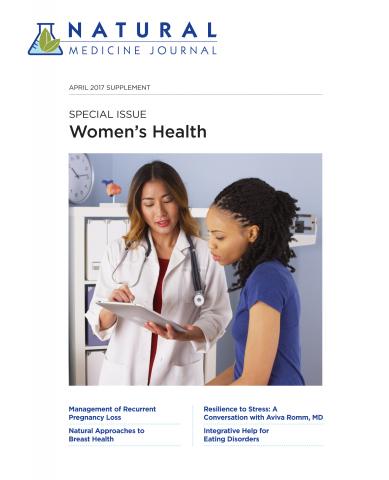This article is part of the 2017 Women's Health Special Issue. Read the full issue or download it here.
Reference
Amiri Behzadi A, Kalalian-Moghaddam H, Ahmadi AH. Effects of Urtica dioica supplementation on blood lipids, hepatic enzymes and nitric oxide levels in type 2 diabetic patients: a double blind, randomized clinical trial. Avicenna J Phytomed. 2016;6(6):686-695.
Design
An 8-week randomized placebo-controlled intervention trial
Participants
Fifty older women with type 2 diabetes mellitus were initially enrolled in the trial; 48 completed the trial, with 24 in each group. Average age was 62 in the intervention group and 60 in the control group. Mean body mass index (BMI) was between 23 and 24 kg/m2 for the 2 groups. Mean length of time since diagnosis was about 13 years.
Study Medication and Dosage
Patients received either 5 mL of an alcoholic extract of dried aerial parts of Urtica dioica (stinging nettles) or placebo 3 times per day, after meals. The extract contained 45% ethanol and 55% water, with 2.7 grams of dry matter in 1 liter of extract.
Outcome Measures
Fasting glucose, triglycerides, levels of high density lipoprotein (HDL), low density lipoprotein (LDL), serum glutamic-pyruvic transaminase (SGPT), glutamic oxaloacetic transaminase (SGOT), nitric oxide (NO), and superoxide dismutase (SOD)
Key Findings
After 8 weeks of intervention, fasting plasma glucose, triglyceride, and SGPT levels significantly decreased in the treatment group. HDL, NO, and SOD levels increased significantly compared to the control group.
Practice Implications
This study reminds us that some of the simplest tonic herbs may still be useful in treating women with diabetes. Though we are all familiar with urtica, I suspect that many of us forget to suggest it to patients with diabetes. Urtica has a long and wide history of use in traditional medicine for treating diabetes.1 We probably should use it more often.
Published research reports consistent benefits of urtica for type 2 diabetes in both animal models and human trials.
Urtica acts in multiple ways to lower blood sugar. Some studies suggest it lowers blood sugar by increasing insulin secretion from the pancreas.2 Apparently it does this by protecting the beta cells in the islets of Langerhans, or alternatively by stimulating an increase in their number.3 Urtica also inhibits the enzyme alpha-glucosidase, slowing the digestion of carbohydrates. This is an action that urtica has in common with several other herbs including Taraxacum officinale, Viscum album, and Myrtus communis.4
According to Namazi et al, urtica also increases insulin sensitivity. In an 8-week randomized, controlled trial with 50 patients with type 2 diabetes, they reported significant differences in interleukin(IL)-6, tumor necrosis factor (TNF)-alpha, high sensitivity C-reactive protein (hs-CRP), and fasting insulin in patients given Urtica in divided doses of 100 mg/kg per day.5
Urtica has a long and wide history of use in traditional medicine for treating diabetes.
In a human clinical trial published in 2013, Kianbakht et al reported benefit in treating people with insulin-dependent advanced type 2 diabetes using 1,500 mg of urtica per day in divided doses for 3 months (n=46). They reported significant improvement in fasting glucose, 2-hour postprandial glucose, and hemoglobin A1c (HbA1c) levels compared to placebo.6
This new study by Behzadi et al looked specifically at cholesterol levels and measures of liver function that they hoped would be improved by urtica treatment. In rats, urtica extracts have decreased 3-hydroxy-3-methylglutaryl coenzyme A (HMG-CoA) reductase activity and lowered LDL.7 This benefit was not seen in this current study; rather, the opposite occurred. In this current study, urtica was associated with decreases in SGPT, suggesting its use might be protective to the liver. The increases in NO observed in this study are seen as a positive improvement. Typically NO levels decrease in type 2 diabetes, a change associated with complications of the disease.8
A significant drawback to this current study is that the authors did not report changes in HbA1c levels in study participants after the intervention. Levels were measured initially but not on follow-up. One might assume this test was omitted because of the relatively short duration of the trial, but it would have been appropriate nevertheless and the omission is noticeable.







